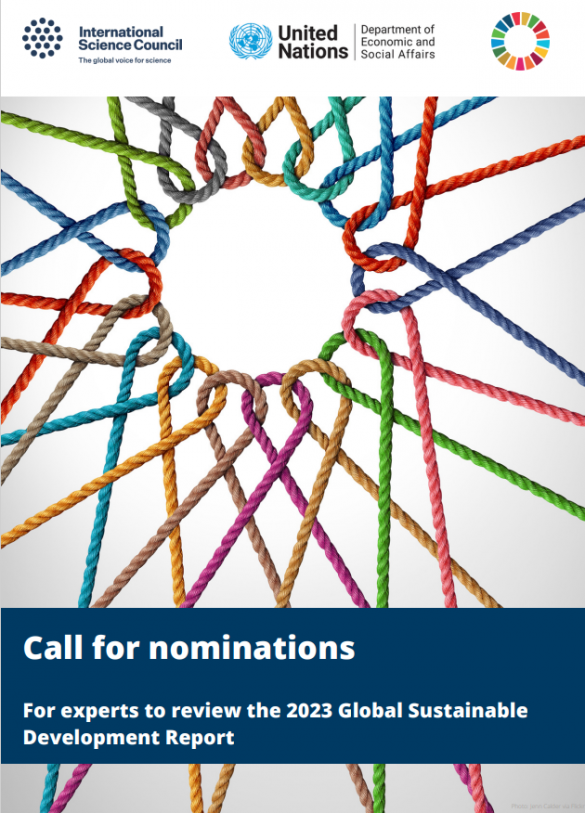News
Published 22 June 2022Call for nominations for experts to review the 2023 Global Sustainable Development Report
International Science Council (ISC) has asked Royal Society Te Apārangi to nominate experts who wish to review the 2023 Global Sustainable Development Report (GSDR). Expressions of Interest must be made through the Society.
The GSDR aims to strengthen the science-policy interface and provide a strong evidence-based instrument to support policymakers in promoting poverty eradication and sustainable development. The next report is expected to be released in September 2023.
We invite expressions of interest for reviewers with the following areas of expertise as defined in 2019 Global Sustainable Development Report.
The six areas of expertise are:
- Human well-being and capabilities
- Sustainable and just economies
- Food systems and nutrition patterns
- Energy decarbonization and universal access
- Urban and peri-urban development
- Global environmental commons
And for each area, a possible focus of:
- Governance
- Economy and finance
- Individual and collective action
- Science and technology
The scientific review
The UNDESA has requested the ISC to coordinate a scientific review of the draft 2023 GSDR. The review has 3 main objectives:
- Ensuring that the report addresses the main issues relevant to the implementation of the 2030 Agenda for Sustainable Development.
- Ensuring that the report is informed by balanced contributions across disciplines (including, natural sciences, social sciences, the humanities, medical sciences, and engineering).
- Ensuring that the report’s findings reflect the global scientific consensus from the scientific and technological community at large regarding the challenges and pathways to achieve the SDGs.
Reviewers should be active in relevant research across a range of scientific disciplines including natural, social, humanities, and engineering, with a strong emphasis on trans‐disciplinary approaches and policy expertise
Reviewers should also have an understanding of international/UN processes related to sustainable development. Reviews should be submitted in English. The reviewers will act in a personal capacity and on a pro bono basis.
The review is expected to take place between mid-September and mid-October 2022. The report to be reviewed in its entirety is expected to be approximately 100-pages in length.
The report
The 2023 report will build on the 2019 report with a focus on accelerating action and overcoming impediments that stand in the way of making levers work together as the world approaches the half-way point of the 2030 Agenda and struggles to rebuild in the aftermath (or in the midst) of the Covid-19 pandemic.
The 2023 report will also address more explicitly the element of time dynamics of transformation and implementation—moving from emergence to acceleration to stabilization along an s-curve. The focus will be on identifying concrete recommendations and tools grounded in evidence for accelerating SDG implementation and on making the field of science more fit for purpose to support this acceleration.
How to apply
Reviewers wishing to be put forward for nomination by the Society, please email your expression of interest to International.Unions@royalsociety.org.nz including your CV, a short description of your area of expertise (250 word max), and a short cover letter (250 word max).
Nomination process
The Society may nominate more than one nomination per category. Submissions will be considered by the Society’s Academy Executive Committee.
Closing date
The closing date for Expressions of Interest: 11 Hōngongoi July 2022

